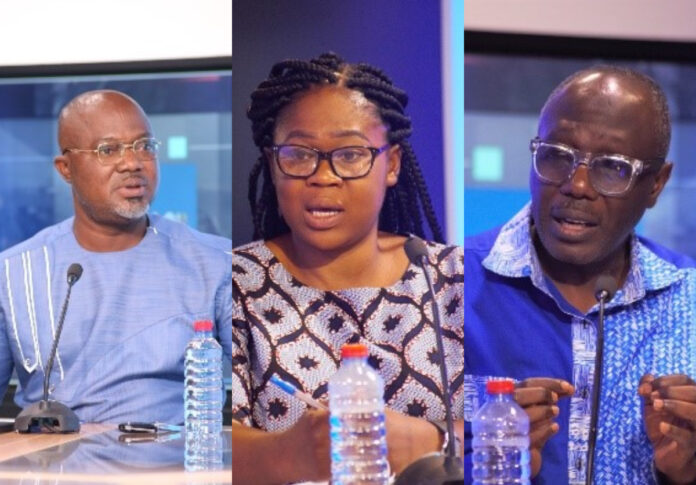
It is no news that Ghana’s fisheries sector has been fraught with a myriad of challenges. These challenges according to experts are threatening the future of the sector.
Speaking to Eye on Port, Dr. Kamal Deen-Ali, the Team Lead at the Center for Maritime Law and Security (CEMLAWS) Africa, expressed that the implications on the economy and livelihood of Ghanaians is very dire.
“We ought to take what is happening in the fisheries sector very seriously from a governance standpoint. Our fisheries are moving from what used to be a food basket to what is looking like a collapsed resource,” he bemoaned.
This assertion was further supported by the Secretary for the Ghana Tuna Association, Richster Nii Armah Amarfio.
He explained that a key component to the sustainability of fisheries is the environment which has been woefully managed.
“As you drive around and you see the Korle, Chemu, Sakumo lagoons collapsing it should immediately inform you that our fisheries is in danger. This is because fish would not survive anywhere without water. When you are losing water, then you are losing your fishery. Our inability to plan and manage our natural resources is posing a lot of danger and our fisheries sector is not doing any better,” he expressed.
Mr. Amarfio also indicated that the increase of human participation in fishing activities has led to overdependence on fish stock, creating unhealthy competition, where some resort to all sorts of means to survive.
He emphasized that fisheries management ought to be treated as natural resource and not agriculture.
Therefore, Richster Amarfio urged governing bodies to adopt a paradigm shift where it is able to reconcile science with the cultural knowledge that would be appreciated by the wider fishing community in the long term.
He said it is important for policy makers to find practicable ways to effectively manage the humans who engage in fisheries.
The Secretary of the Ghana Tuna Association also highlighted how the closed season should be approached among other strategic fisheries management methods.
He said, “probably it would be more efficient to do temporary area closures for some essential habitats. For instance, why do we continue to fish around the estuaries which serve as an entry point for fish that may be migrating into fresh or brackish water and fish that may be migrating from brackish water into the open sea?
“We allow people to fish around those places with very small mesh. We are losing our mangroves which serves as hatchery for crustaceans such as crabs, prawns who spawn around there. We need to have an ecosystem approach and the management regime should vary for the various species.”
Dr. Kamal Deen-Ali, the team lead at CEMLAWS Africa, touched on some transparency issues that are jeopardizing the growth of the sector.
He raised the issue of the application of licenses for trawl operators, the foreign interest in Ghana’s fisheries and their seeming dominance in the industry, remuneration within the sector, effectiveness of sanctions, among others.
A Senior Research Officer at CEMLAWS Africa, Dr. Rebecca Essamuah revealed that its due to these management problems, among others that has occasioned her outfit’s research project that aims at enhancing transparency in the sector.
The Enhancing Transparency in Fisheries project, sponsored by Bloomberg Philanthropies, will last 2-years, and it is currently in its first phase.
It will examine the inherent transparency issues in the sector, assess the information sharing mechanisms and evaluate legal frameworks
It is running in three other countries aside Ghana, which are Benin, Senegal, and La Cote D’Ivoire.









